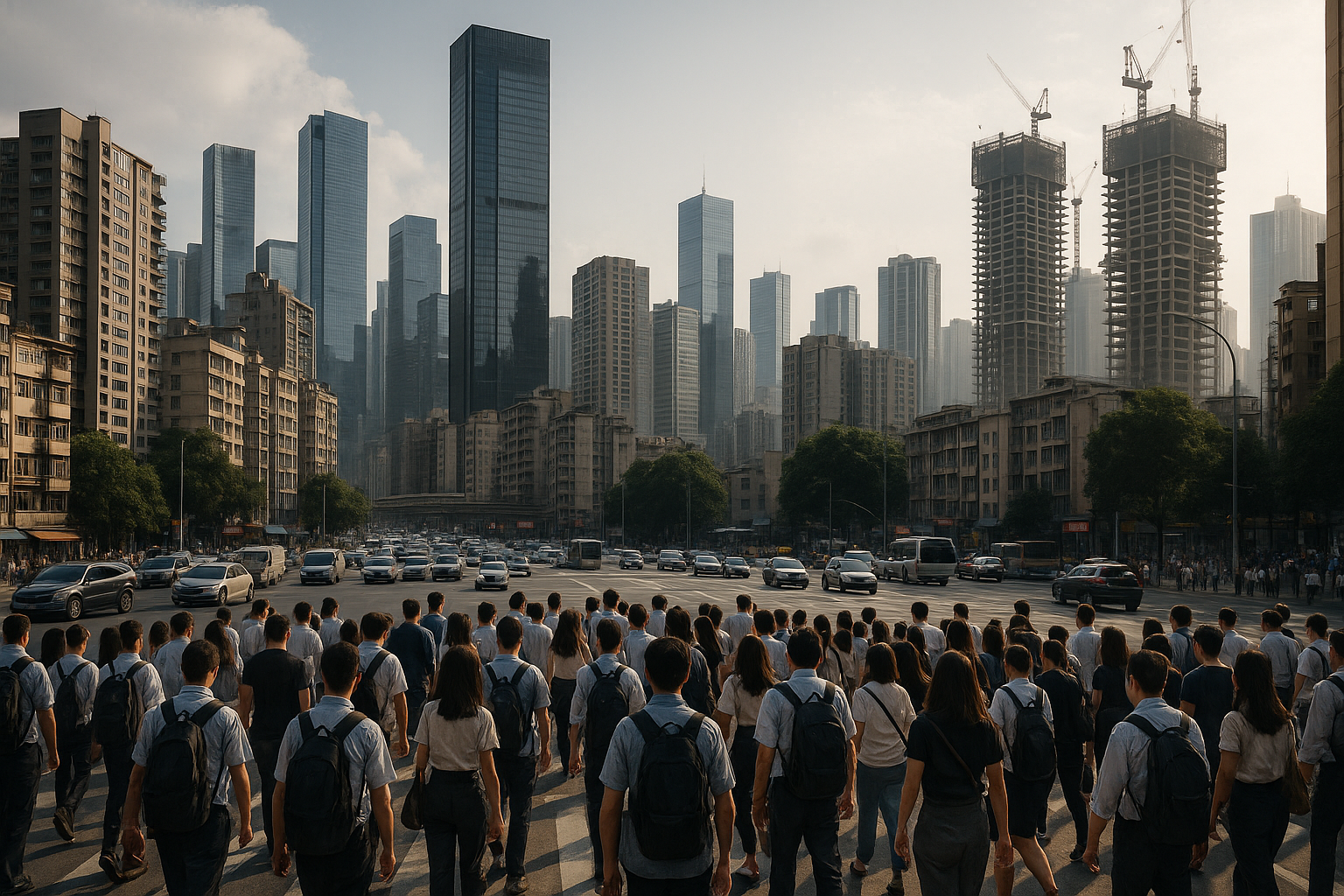The Intricate Web of Urbanization: Unraveling Its Societal Influence
Urbanization, the process of population shift from rural to urban areas, has been a global phenomenon for centuries. Rooted in the industrial revolution, this trend continues to transform societies worldwide, shaping our present and future. This article delves into the intricate web of urbanization, tracing its historical context, exploring its current trends, and discussing its far-reaching implications for modern society.

Historical Context of Urbanization
Urbanization has played a pivotal role in societal transformation. The process began with the industrial revolution in the 18th and 19th centuries when people started to migrate from rural areas to cities in search of better opportunities. This movement was accelerated by advancements in transportation, communication, and technology. It marked a significant shift in societal structures, altering not only the physical landscape but also social dynamics, cultural norms, and economic systems.
Contemporary Urbanization: Trends and Shifts
In the contemporary world, urbanization is characterized by rapid growth and profound change. According to UN data, 55% of the world’s population lives in urban areas, a figure projected to increase to 68% by 2050. This growth is particularly noticeable in developing regions, signaling a shift in the global urbanization pattern.
The trend of urbanization is also intertwined with the rise of mega-cities, urban areas with more than 10 million inhabitants. These mega-cities are becoming epicenters of economic growth and cultural exchange, but they also face unique challenges, such as overcrowding, infrastructural strain, and socio-economic inequality.
The Societal Influence of Urbanization
Urbanization brings a wealth of benefits, including economic development, cultural diversity, and increased access to services. However, it also poses significant challenges that require careful management.
On a positive note, urbanization fosters economic growth by creating a concentration of human capital and potential, which can lead to increased productivity and innovation. The cultural diversity in urban areas enriches societal interactions, paving the way for a more inclusive and tolerant society.
On the flip side, rapid and uncontrolled urbanization can lead to a range of societal problems. It can exacerbate socio-economic inequality, leading to the emergence of slums and increased poverty. It can put pressure on infrastructure, leading to inadequate housing, transportation, and basic services. Moreover, urbanization poses significant environmental challenges, contributing to pollution and climate change.
Navigating the Complexities of Urbanization
While urbanization is a global trend with far-reaching implications, its impact varies across different societies. Understanding these nuances is key to leveraging the benefits of urbanization while mitigating its challenges. Policymakers, urban planners, and society at large need to take a proactive, holistic approach to manage urbanization, ensuring it is sustainable and inclusive.
Urbanization is shaping our modern societies in profound ways. Grasping its complexities is critical for us to navigate our urban future effectively.
In conclusion, urbanization is an intricate web of societal transformation, with deep historical roots and wide-ranging contemporary implications. It presents both opportunities and challenges, demanding nuanced understanding and innovative solutions. As we continue on this urban journey, let’s strive to create cities that are not only places of growth and opportunity but also bastions of inclusivity and sustainability.




